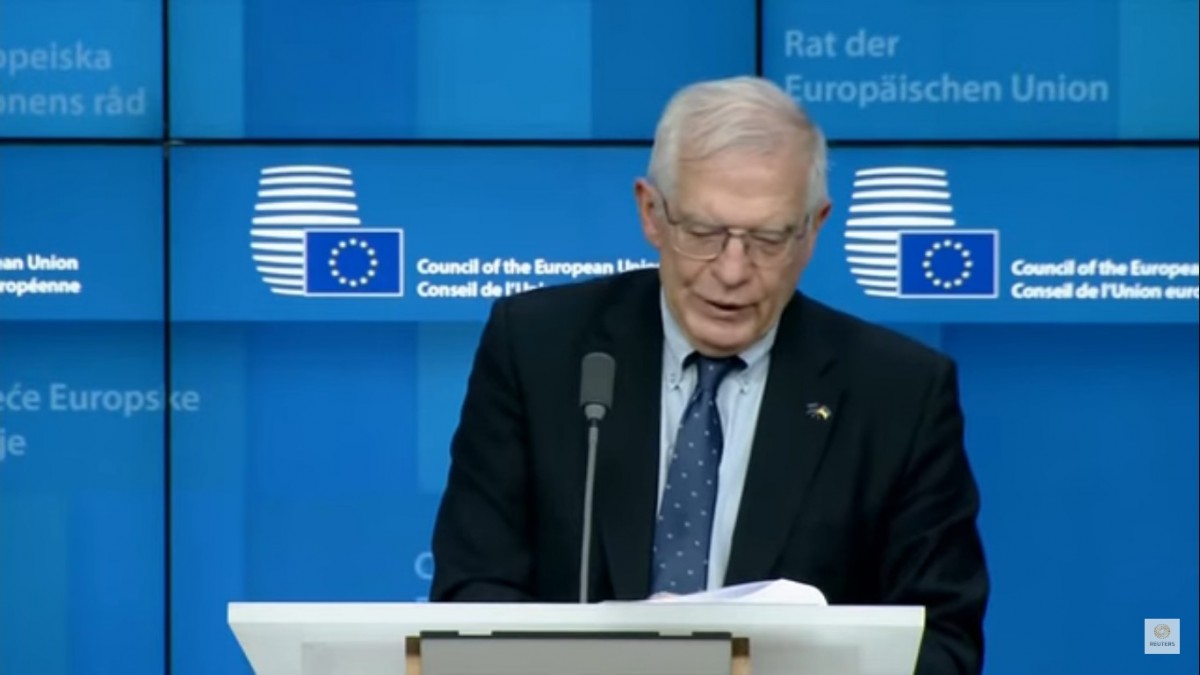No decision was made at the meeting of EU foreign ministers on Monday to sanction Russian oil and gas imports, although the possibility of imposing sanctions is on the European Union’s “table”, the European Union’s High Representative for Foreign Affairs and Security Policy said in Luxembourg on Monday.
Josep Borrell said in a press conference following the Foreign Affairs Council meeting that the sanctions imposed by the European Union so far have had a significant impact on the Russian economy, but further discussion is needed on what measures can be taken in the future.
The head of EU diplomacy said Russia’s war in Ukraine had failed. The Russian army has not been able to take Kyiv, it is now carrying out troops in the eastern half of the country. He is expected to strike another blow in the Donbas region, he said. Borrell stressed that Russia’s war in Ukraine was “horror-wise”. He noted that Russia is responsible for the global food crisis. Russia is bombing Ukrainian cities and wheat stocks and preventing grain from being shipped abroad, “provoking hunger in the world,” he said.
He said the foreign ministers had discussed how to hold Russia accountable for serious violations of international law. The European Union is supporting an international investigation to ensure that those responsible for the killings of civilians as a war crime are held accountable, with sufficient evidence, the High Representative said.
Everything that is happening in Ukraine confirms the European Union’s commitment to supporting the country, he emphasized.
In response to a question, Mr. Borrell said that, as a result of a unanimous vote by the Member States, the European Union would support arms transfers to Ukraine with the consent of its member states. “It is another matter that Hungary does not allow arms shipments on its territory directly to Ukraine, but pays its share, so it participates in Ukraine’s arms supply,” he said.
He emphasized that the EU’s eastern member states were under greater pressure to take in refugees from the war and that these countries were also relying more heavily on Russian energy sources. This “asymmetric” situation between the eastern and western member states of the union must be dealt with jointly, unitedly and with solidarity, he underlined.
We must fight for an end to large-scale dependence on Russian energy as soon as possible, find new suppliers and strive for the introduction of renewable energy sources, the head of EU diplomacy added.
debreceninap.hu


















